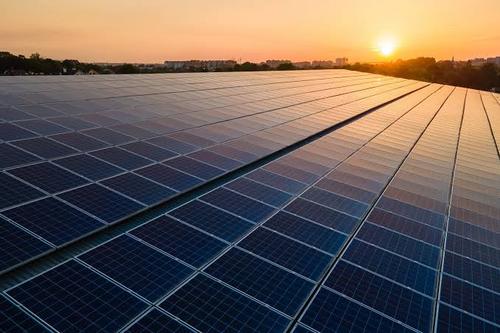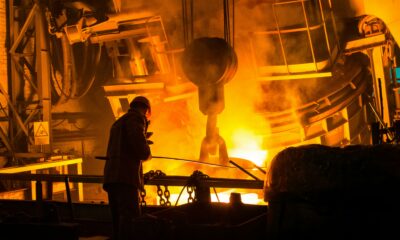Business
Beyond the Rooftop: How South African Industries Are Reinventing Solar Energy

Solar isn’t dead. It’s just growing up and South African businesses are learning to grow with it.
For years, renewable energy solutions in South Africa were treated as backup plans — a hedge against load shedding and erratic Eskom performance. Slap on some rooftop panels, reduce your dependency, call it a day. But as the country’s energy terrain continues to shift underfoot, that old-school approach is no longer enough.
Today, solar is no longer a side hustle. It’s a strategic decision, one that demands planning, layering, and foresight.
Load Shedding Lull: A False Sense of Security?
With load shedding somewhat stabilised in 2025, many C-suite execs are breathing easier — and mistakenly assuming the solar gold rush is over. But according to Sakhile Ngcongwane, Business Development Manager at SolarAfrica, the lull is deceptive.
“Solar’s value hasn’t diminished, it’s evolved,” Ngcongwane explains.
Indeed, the problem isn’t the sun. It’s the system.
South Africa’s carbon tax policy, introduced in 2019 to curb emissions, was meant to reward clean energy adoption. But years of corporate lobbying have watered it down. Despite threats of tax hikes, government concessions have kicked the can down the road, extending generous allowances until 2030. This leaves industries with little immediate financial incentive to go green.
EU Carbon Tariffs: The Pressure is Now Global
That may soon change, not from Pretoria, but from Brussels.
The European Union’s Carbon Border Adjustment Mechanism (CBAM), set to go live in January 2026, could penalise local exporters whose products don’t meet international carbon standards. For businesses shipping steel, cement, and other high-emission goods abroad, it’s a looming cost curveball.
In short: if South Africa won’t make carbon count at home, Europe will do it at customs.
Eskom’s New Tariff Puzzle
Back on home turf, Eskom has rolled out a new Retail Tariff Plan (RTP), changing how electricity costs are calculated. The updated model bumps up fixed charges while lowering the price of each additional kilowatt-hour. The upside? Predictable bills. The downside? Reduced savings from self-generated power like solar.
What used to be a simple ROI equation more solar equals more savings, now requires a more tactical, diversified approach.
Enter: Energy Stacking
Ngcongwane calls the new game plan “energy stacking” and it might just be the future of industrial energy in South Africa.
This model isn’t about picking one solution. It’s about combining them:
-
Solar for midday generation
-
Battery storage for load balancing and grid independence
-
Wheeling energy from off-site generators for flexibility
-
Energy trading to monetise excess power
Think of it less like flipping a switch, and more like designing an energy ecosystem.
Why It Matters Now
The timing couldn’t be more critical. In a country where blackouts have stolen headlines, it’s easy to overlook quieter shifts. But while the power might be more reliable in 2025, the cost structure, international policy landscape, and ESG expectations are changing fast.
Industries that wait too long to rethink their energy strategies may find themselves boxed in — financially, competitively, and reputationally.
As ESG standards rise and shareholders push for greener portfolios, energy isn’t just a line item anymore. It’s part of brand value.
What South African Businesses Are Saying
On social media, local business leaders are starting to catch on. A LinkedIn post from a Cape Town manufacturing CEO read:
“We thought solar was just about surviving Eskom. Turns out, it’s about surviving Europe, tariffs, and investor pressure too.”
Twitter/X is also lighting up with energy takes. One user wrote:
“If your energy plan doesn’t include batteries, wheeling, and carbon math, you don’t have an energy plan.”
The conversation around solar energy in South Africa has matured. It’s no longer about putting panels on your roof and hoping for the best. It’s about future-proofing your operations, financially, legally, and environmentally.
Businesses willing to embrace energy stacking and rethink how they consume, produce, and trade power will be the ones that stay resilient, compliant, and competitive in the years ahead.
Because in this new energy economy, the sun is still shining, but only the savvy and strategic are going to harness it right.
{Source: IOL}
Follow Joburg ETC on Facebook, Twitter , TikTok and Instagram
For more News in Johannesburg, visit joburgetc.com



























